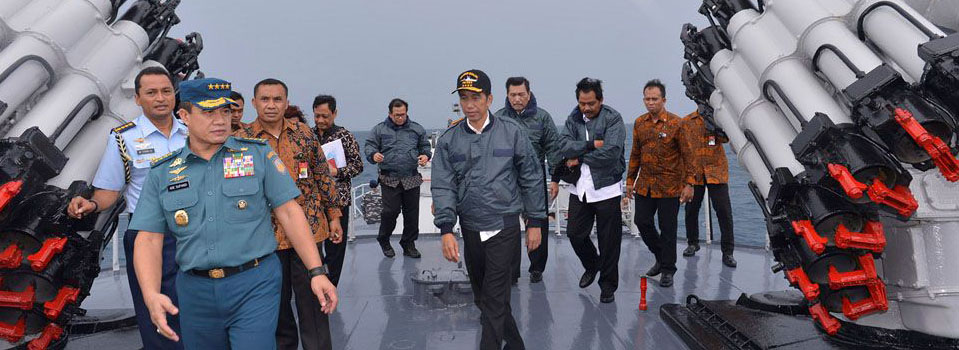They will let his govt be more hands-on in tackling security and economic issues.
The Bambang administration is likely to be styled after the White House, with two powerful bodies set up to tackle the country’s two most gripping issues – security and economic recovery.
On the cards, top aides disclosed, are a national security council and an economic advisory body.
The new bodies might help Mr Bambang do away with the existing portfolios of coordinating ministers – whose incumbents have in the past been seen as economic and security czars – in what could be a major change in how the government is run in Indonesia.
This means that Mr Bambang and his deputy, Mr Jusuf Kalla, are likely to be very hands-on in dealing with two of his government’s top priorities – economic recovery and the anti-terrorism fight.
A senior adviser, who is involved in the deliberations, told The Straits Times: ‘We are still brainstorming the different options available.
‘Setting up these bodies is the most preferred one and has been at the back of Bambang’s mind even before he ran for the presidency.
‘He finds the White House model to be the most appealing. It will help him streamline a bloated bureaucracy and get things done more efficiently. His plan is to get the executive actively involved in the day-to-day running of the government.’
The national security council would deal with foreign and defence affairs, as well as tackle conflicts in trouble-prone areas such as Aceh, Papua, Poso and Maluku.
More importantly, it would handle the looming threat of terrorism.
While the Megawati government established an anti-terrorism task force, doubts remain whether the military, police and the state intelligence agency can work together, given the pervasive rivalry between these outfits.
Mr Syamsir Siregar, a former military intelligence chief and security adviser to Mr Bambang, explained: ‘We need an umbrella agency that will have the power and mandate to oversee and coordinate their activities. If the president is directly involved, it will give the council even greater clout.’
If the security council is set up, Mr Bambang will oversee it. Cabinet ministers and senior officials from different security bodies in Indonesia would also be represented.
Two names are being touted to head this potentially influential agency.
One is Admiral Widodo A.S., a former military commander whom Mr Bambang served under as territorial chief. The other is Lieutenant-General Sudi Silalahi, a close friend of the four-star general who played a key role in his rise to power.
The broad plan is for Mr Bambang to deal directly with security matters and Mr Jusuf, a South Sulawesi-born businessman, to be more involved in economic issues.
The presidential economic advisory body would be loosely styled after the White House Council of Economic Advisers. It would comprise seven to 10 members, mostly businessmen and respected economists.
A well-connected source revealed that Indonesian-Chinese business tycoon Sofyan Wanandi was in the running to head the panel.
Mr Bambang is also reportedly lining up three American-trained economists for key economic posts in his government.
One of them is Dr Sri Mulyani, who spent a year in the International Monetary Fund in charge of South-east Asian affairs. She is being tipped to take over the Finance Ministry.
Dr Mari Pangestu, the former executive director of the Jakarta-based Centre for Strategic and International Studies, is being considered for the trade and industry portfolio.
Bambang loyalist Joyo Winoto, who heads the Brighten Institute think-tank, is likely to be chairman of the National Planning Board.
Although plans are under way to establish the two new bodies and restructure the government, there could be obstacles in the way.
The law on the structure of ministries is still pending – and could be delayed if the opposition coalition led by Golkar and current president Megawati Sukarnoputri’s Indonesian Democratic Party -Struggle block it.
Nevertheless, the Bambang team is still intent on exploring the idea.
Golkar executive Marzuki Darusman, who is one of several party members supporting his presidency, said there are also plans for the palace to set up a liaison office in parliament.
‘This is to facilitate communication with legislators and keep track of parliamentary debates on security and economic issues,’ he said.
‘If there is any stand-off with hostile members, it will allow the president’s office to step in and deal with the problem. They are really taking a leaf out of the West Wing.’

